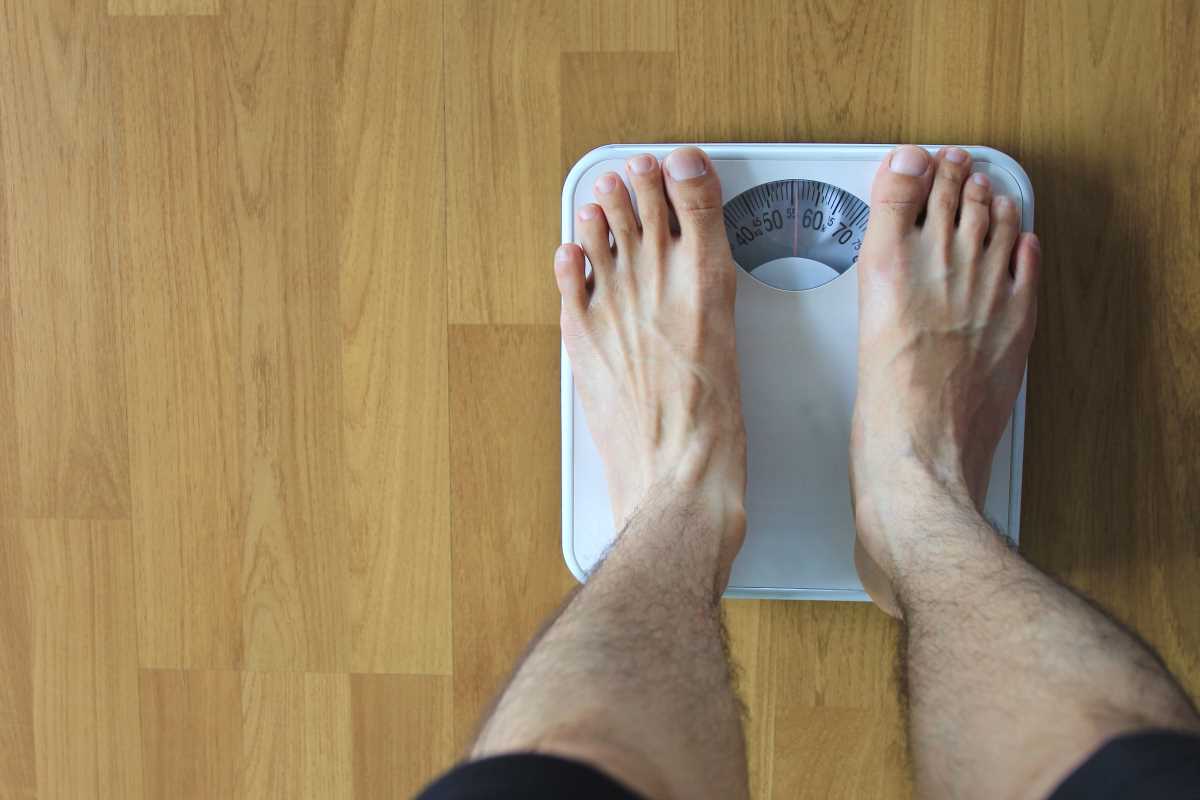Losing weight isn’t always as simple as eating less and moving more. While diet and exercise are undoubtedly important factors, they’re not the whole story. Hormones, your body’s chemical messengers, significantly influence your ability to lose weight. When these hormones are out of balance, they can slow down your metabolism, trigger hunger, and even prompt your body to store fat more aggressively. Understanding the role hormones play in weight regulation is essential for anyone who feels stuck despite their best efforts. Here, we’ll explore how hormonal imbalances can prevent weight loss, the signs to watch for, and what you can do about it.
The Role of Hormones in Regulating Body Weight
Hormones are like the unseen architects of your body. They regulate countless functions, including appetite, metabolism, fat storage, and energy levels. Key players in weight regulation include insulin, cortisol, thyroid hormones, and sex hormones like estrogen and testosterone. When these hormones are in harmony, your body runs efficiently, and weight management becomes relatively straightforward. However, imbalances can throw everything off, making it much harder to shed excess pounds.
Hormonal imbalances can arise due to factors like chronic stress, poor diet, lack of sleep, age, or certain medical conditions. Since these imbalances affect underlying processes like how your body uses energy or stores fat, traditional weight-loss strategies may fall flat when hormones are out of sync.
Hormones That Affect Weight Loss
1. Insulin
Insulin is a hormone produced by the pancreas, and its primary job is to regulate blood sugar levels. When you eat, particularly sugary or high-carbohydrate foods, insulin helps shuttle glucose into your cells for energy or storage.
However, when insulin levels remain elevated for extended periods—often a result of frequent sugar consumption or insulin resistance—a vicious cycle begins. High insulin not only promotes fat storage but also makes it difficult for your body to burn stored fat for energy. This is why people with insulin resistance or Type 2 diabetes often experience weight gain or struggle with weight loss.
Symptoms to Watch For:
- Cravings for sugar and carbohydrates
- Frequent hunger
- Fat accumulation around the midsection
- Fatigue or sluggishness after eating
Solutions:
Managing insulin levels often involves dietary adjustments, such as reducing sugar intake, focusing on whole foods, and balancing macronutrients. A low-glycemic diet that prioritizes protein, healthy fats, and fiber can help stabilize blood sugar levels.
2. Cortisol
Known as the "stress hormone," cortisol is released by your adrenal glands in response to stress. Short-term bursts of cortisol can be helpful, supplying your body with quick energy during a crisis. However, chronic stress leads to persistently high cortisol levels, and this can wreak havoc on your body.
Cortisol encourages your body to store fat, particularly in the abdominal area, as a survival mechanism. It also increases cravings for sugary or fatty comfort foods, creating a cycle of emotional eating. Combined with its ability to disrupt sleep and hinder muscle repair, high cortisol can significantly impede weight loss efforts.
Symptoms to Watch For:
- Persistent belly fat
- Elevated cravings for sweet or salty snacks
- Difficulty sleeping or staying asleep
- Feeling "wired but tired"
Solutions:
Stress management is crucial for lowering cortisol. Practices like yoga, meditation, deep breathing exercises, and regular physical activity can help. Ensuring consistent sleep patterns and reducing caffeine intake can also aid cortisol balance.
3. Thyroid Hormones
The thyroid gland, located at the base of your neck, produces hormones like T3 and T4 that regulate metabolism. If your thyroid is underactive—a condition known as hypothyroidism—your metabolism slows, making it harder to burn calories efficiently.
Hypothyroidism can make you feel fatigued, sluggish, and prone to weight gain, even if your diet and exercise routine are on point. It can also result in water retention, making you feel heavier than you are.
Symptoms to Watch For:
- Unexplained weight gain
- Fatigue and low energy
- Cold intolerance
- Dry skin and hair thinning
Solutions:
If hypothyroidism is suspected, a blood test measuring TSH (thyroid-stimulating hormone) and free T3/T4 levels can confirm the diagnosis. Treatment often involves medication like levothyroxine to normalize thyroid hormone levels. Supporting your thyroid with a diet rich in iodine, selenium, zinc, and vitamin D may also help.
4. Sex Hormones (Estrogen, Progesterone, and Testosterone)
Sex hormones play a pivotal role in maintaining balance throughout the body, and imbalances can contribute to weight issues. For women, high levels of estrogen (or estrogen dominance) can promote fat storage, particularly in the hips and thighs. This often happens during perimenopause, menopause, or conditions like polycystic ovary syndrome (PCOS).
For men, low testosterone levels can lead to decreased muscle mass and increased fat accumulation, making weight loss more challenging. Testosterone naturally declines with age but can also be influenced by lifestyle factors, such as chronic stress or poor sleep.
Symptoms to Watch For:
- Unexplained weight gain (especially in thighs or belly)
- Fatigue and low energy
- Decreased libido
- Mood swings
Solutions:
Balancing sex hormones often involves lifestyle changes. Weight training can boost testosterone levels in men and improve lean muscle mass for both genders. A moderate-fat diet that includes healthy fats like avocados, nuts, and seeds may also support hormonal balance. For women experiencing menopause, hormone replacement therapy (HRT) could be an option, but it’s essential to consult a doctor.
Diagnosing Hormonal Imbalances
If you suspect a hormonal imbalance is sabotaging your weight-loss efforts, consult a healthcare provider. Diagnosis usually involves a combination of symptom assessments and blood tests to measure specific hormone levels, such as insulin, cortisol, thyroid hormones, or sex hormones.
Specialists like endocrinologists can offer targeted treatment plans to address the root cause of your imbalance. Diagnosing the issue is a critical first step toward regaining control over your health and weight.
Treatment and Lifestyle Changes
While medical intervention may be necessary in some cases, lifestyle changes can play a significant role in managing hormonal imbalances. Here are some strategies to get you started:
- Prioritize Nutrient-Dense Foods: Focus on eating whole, unprocessed foods to avoid large blood sugar spikes that can disrupt hormones like insulin.
- Stay Active: Regular exercise not only burns calories but also helps regulate hormones like cortisol and insulin.
- Get Quality Sleep: Adequate sleep is essential for hormone regulation. Aim for 7–8 hours of restorative sleep each night.
- Manage Stress: Chronic stress disrupts cortisol, insulin, and other hormones. Incorporate stress-reducing practices into your routine.
- Support Gut Health: A healthy gut microbiome impacts hormone regulation. Include probiotics (yogurt, kefir, fermented foods) and fiber-rich foods in your diet.
- Hydrate Well: Dehydration can indirectly affect hormone production and overall metabolism. Drink plenty of water throughout the day.
Tips for Weight Loss When Hormones Are a Factor
If hormonal imbalances are at the root of your weight challenges, be patient with your body. Here are some additional tips to keep in mind:
- Focus on Small Changes: Even slight adjustments in diet, sleep, or exercise can lead to gradual improvements over time.
- Seek Professional Guidance: A dietitian or endocrinologist can provide personalized advice tailored to your unique needs.
- Avoid Crash Diets: Extreme calorie restrictions can worsen hormonal imbalances, leading to greater long-term challenges.
- Track Trends, Not Numbers: Weight often fluctuates daily. Pay attention to trends over weeks or months instead of daily progress.
Hormonal imbalances can make weight loss incredibly frustrating, but understanding their role allows you to take meaningful action. By addressing the root causes—whether it’s insulin resistance, high cortisol, hypothyroidism, or sex hormone imbalances—you can regain control over your weight and your health. Armed with the right tools, support, and patience, achieving sustainable weight loss is entirely possible. Remember, the key is not to fight your body but to work with it to restore balance and promote long-term well-being.







